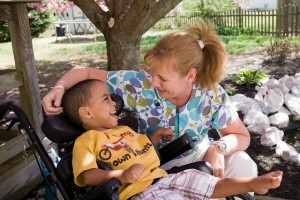
Celebrating the holidays with your expat family could be the beginning of new traditions.
While there are certainly many occasions when you feel homesick while living abroad, there’s something about spending your holidays abroad, especially the first time, that can make you feel really isolated.
This is normal; everywhere you look families and friends are joining together, acting as a constant reminder that you are far away from home.

Are we forgetting important diseases?
They lurk in the dark corners of our forgotten memories, but they are by no means gone. Global attention is still focused on malaria, Ebola, E. Coli and HIV and yet there are other diseases, long forgotten, that continue to claim lives in the darkness, when no one is looking.
Thanks to scientific research, technological advances and medicine, we have been able to control a multitude of diseases lowering their impact on the world; but only one has ever been completely wiped off the face of the earth – smallpox.

Sever mood swings and behaviour changes are indicators of a mental health condition.
Suicide is the third leading cause of death in children and young adults between 10 and 24 years old. People tend to think of mental health as something generally affecting adults; after all, adults lead more stressful lives than children do. However, the numbers show that approximately 20% of the world’s youth suffer from some sort of mental disorder or problem. But, are we talking to our children about it?
A recent poll including more than 1,100 parents showed that 55% of them had never addressed the issue of mental health with their children. Whether it was because they didn’t know how to approach the subject or because they felt that it was unnecessary to discuss, children are being left out of the loop. Just like you would address the subject of nutrition, friendship and relationships, it is important to discuss mental health too. This is an important issue, and if your child is suffering, it is important that they know they do not have to suffer in silence.

How will you take care of your family when you’re gone?
Do you know the difference between health and life insurance? I’ll let you in on a secret: they are both equally important to have in your portfolio.
We have already discussed the importance of choosing the right health insurance coverage while living abroad. Life insurance is not something you want to think about, but if something were to happen to you, you will want to ensure the safety and security of your family abroad.

A family moving abroad needs to stick together to make the process smooth.
Moving to a new country for an adult is a challenge, but towing a whole family along with you can multiply the challenges greatly. Although it tends to be easier for children to adapt to new environments, make new friends and learn new languages, it can still be challenging for them to adapt to a life abroad.
As parents it is crucial to listen to your children and try and make the process easier for them. Read More →

The average person will consume a whopping 6,000 calories on Christmas Day.
Regardless of whether you celebrate Christmas or not, your children will most likely have a couple of weeks off school over the holiday period.
We all know that spending more time at home means more snacking and less exercising. Moreover, during the Christmas season, the average Briton will gain 2.5kg – and although we’d love to blame Christianity or Coca-Cola for it, it’s really our own fault. According to some experts, the average person will consume a whopping 6,000 calories on December 25th. This is just the average person, which means that some people will eat a significantly higher amount.

A new study showed that bilingual patients were more likely to recover from a stroke than those who only speak one language.
We all know that being bilingual makes things easier – communicating abroad or watching a movie without subtitles – but there are other advantages to being able to speak more than one language especially when it comes to your health.
While recent research found that bilingualism could delay the onset of Alzheimer’s disease, a new study showed that bilingual patients were more likely to recover from a stroke than those who only speak one language. This suggests that the ability to speak more than one language can protect the brain to a certain extent from the damaging influences a stroke can have. This study was the first of its kind in terms of analysing the connection between repair of the cognitive function and bilingualism. Read More →

It is natural for your children to be scared of moving abroad, as a parent it is important that you address their worries.
In our media driven society, is it difficult to shield this generation’s children from terrifying events which occur on a daily basis across the globe. As a parent it is your job to reassure the safety of your children, which is easier said than done.
In the wake of the tragic terrorist attacks in Paris, Beirut, Baghdad and Tunisia, and the subsequent media coverage – we are terrified. So, just imagine how scared your children must be feeling.

If you have a child with special needs, have you ever considered the benefits of moving abroad?
Raising a child with special needs, anywhere in the world, is a challenge. Even when you’re in the familiarity of your home country, finding the right education, proper support and help so your child thrives can be difficult.
So, what happens when a family is offered the opportunity to relocate? How many families are willing to face the challenges of starting over again: the difficulty in understanding a different infrastructure, finding a school you and your child are happy with and not to mention a potentially discriminating attitude to special needs in general.

In the future expats might be denied access to the public health services in Kuwait.
Kuwait is in the process of passing a bill which if approved will mean that expatriates living in the country no longer have access to the public health care services. The idea behind this is to lessen the strain on the governmental budget in light of the drop in international oil prices.
Nearly 3 million expatriates live and work in Kuwait. The government divides them into two categories. The first category includes foreigners who are working in the private sector. If the plans are approved, this group would be treated in expat-only hospitals. The second category are those who work in the public sector or as domestic servants. For this group it would only be possible to get treatment at private medical facilities.